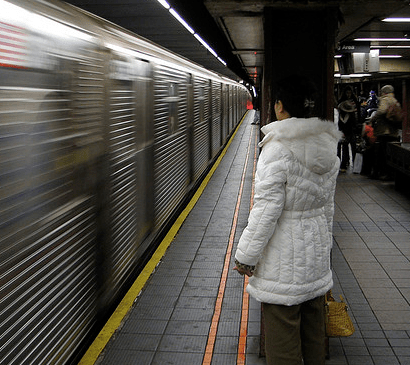The fight over how to fund the MTA's next capital plan is just starting to heat up, with worries over disappearing federal dollars, ever-expanding debt, and proposals for new revenue sources. Before the funding discussion gets going in earnest, a new report from the Citizens Budget Commission [PDF] begs the region's transportation policymakers to take a step back and consider a more fundamental question: Does this plan prioritize the right things?

CBC offers some harsh, if unsurprising, words for the MTA. The think tank says the authority isn't focused enough on state of good repair and modernization, and instead pours too many resources into poorly-managed system expansion. CBC says the authority doesn't have a clear process for selecting which of the region's many worthy transit expansion projects move forward. Once a project is underway, the MTA has a poor track record for keeping costs and construction schedules under control.
The report has three main points: The authority is systematically scaling back its state of good repair targets and investments, is not investing enough in signal upgrades that could boost capacity on existing train lines, and needs to rethink its approach to large system expansions.
The report's most damning conclusions raise questions about the MTA's "declining ambition" to keep the transit network in a state of good repair. Looking at previous capital plans and the "needs assessment" documents that precede them, CBC found that the MTA is failing to meet many of its state of good repair targets from previous capital plans, and has lowered its investment targets in more recent documents. "The needs assessment set a low bar," the report says, "and the approved plan does not meet even that low bar."
Echoing a report from the Regional Plan Association earlier this year, CBC also urges the MTA to pick up the pace of investment in Communication-Based Train Control, which upgrades signals to allow for more frequent trains. The L train already has CBTC; installation is underway on the 7 train, and the Queens Boulevard subway is next. Despite the big benefits CBTC can bring to system capacity and operations, it's proceeding at a snail's pace.
"The historic pace of installation has been four track miles per year; the implicit planned pace in the needs assessment would be about 16 miles per year," the report says. If that optimistic pace continued indefinitely, "complete conversion would not occur until 2057 -- about 60 years after the project began." Why doesn't the MTA heed these recommendations to ramp up investment in CBTC? One potential reason: Upgrading signals requires significant service disruptions and shutdowns while installation is in progress. That's not nearly as appealing to the public (and elected officials) as new system expansions.
The report also had tough words for how the MTA handles expansion projects. "The MTA’s expansion proposals have two deficiencies -- lack of clear priorities for selecting projects and weak capacity for implementing projects efficiently," it says. The report calls out the MTA for allocating money in its capital plan for expansion, like phase two of the Second Avenue Subway and Metro-North access to Penn Station, before having cost estimates for those projects. It also bemoans poor management of the East Side Access project, which is eating up billions of dollars in the capital plan due to delays.
CBC recommends the authority pause commitment to new expansion projects until it can create a clearer process for selecting which projects move forward, and improve management of its mega-projects.
While these are important points about deficiencies in the way the MTA does business, it's unclear if anyone at the authority or in Albany is listening. When asked for a reply to the points raised in the CBC report, the MTA offered a stock response. "The MTA Capital Program has invested more than $100 billion in rebuilding the mass transit network since 1982, resulting in far better conditions, more reliable service and record ridership," the authority said in a statement. "Our 2015-2019 Capital Program reflects the MTA’s priorities to renew, enhance and expand the network, in order to start a dialogue among all stakeholders about how to maintain and improve the network as well as how to pay for these vital improvements."





